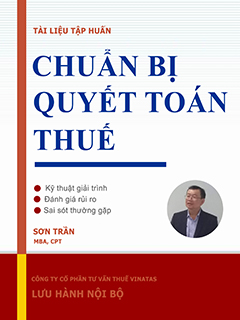Accounting Dictionary – 40 - HYP
HARD COSTS is the purchase price of actual assets. For example, the purchase price of a new printing press would be the hard cost. The soft costs are additional fees for items like factoring-invoiced installation, prepaid and extended warranties, or service contracts for the new equipment.
HARMONIZED SYSTEM is an internationally agreed upon classification system for trade. It provides code numbers to specify a goods classification; thereby making customs duty determination more predictable.
HEADCOUNT is the act of counting people in a certain way or in a particular group.
HEAD OF HOUSEHOLD is a U.S. income tax filing status that can be used by an unmarried person who maintains a home for a dependent (or nondependent relative) during the tax year.
HEDGE, in securities, is a transaction that reduces the risk of an investment.
HEDGE FUND is a special type of investment fund with fewer restrictions on the types of investments it can make. Of note is a hedge fund's ability to sell short. In exchange for the ability to use more aggressive strategies, hedge funds are more exclusive, i.e., fewer people, usually only the wealthy, are allowed to invest in hedge funds.
HEDGING, in securities, is taking two positions that will offset each other if prices change, thereby limiting financial risk.
HELD TO MATURITY normally refers to a long term security (note or bond held for more than one year) that has a predetermined maturation event.
HIDDEN ASSET is any valued asset that is not included in the book value of a company. Companies have hidden assets such as intellectual property, or customer lists which are of great value, but not reflected in the book value.
HIGH-LOW METHOD is an algebraic procedure used to separate a semi-variable cost into the variable and fixed components. The method calls for using the extreme data points (highest and lowest x - y pairs) in the COST-VOLUME FORMULA y = a + bx; where a = fixed cost portion and b = the variable rate.
HIRE AND PURCHASE AGREEMENT is a contract (more fully called contract of hire with an option of purchase) in which a person hires goods for a specified period and at a fixed rent, with the added condition that if he shall retain the goods for the full period and pay all the installments of rent as they become due the contract shall determine and the title vest absolutely in him, and that if he chooses he may at any time during the term surrender the goods and be quit of any liability for future installments upon the contract. In the United States such a contract is generally treated as a conditional sale, and the term hire purchase is also sometimes applied to a contract in which the hirer is not free to avoid future liability by surrender of the goods. In England, however, if the hirer does not have this right the contract is a sale.
HISTORICAL COST ACCOUNTING is an accounting principle requiring all financial statement items to be based on original cost. It is usually based upon the dollar amount originally exchanged in an arm's-length transaction; an amount assumed to reflect the fair market value of an item at the transaction date.
HOLDING COMPANY is a company which owns or controls other companies. (Control can occur through the ownership of 50 per cent or more of the voting rights or through the exercise of a dominant influence.)
HORIZONTAL FINANCIAL ANALYSIS allows comparison of one company's ratios to the ratios of other companies as well as to average industrial ratios and internal industrial deviation of these ratios.
HOSTILE TAKEOVER occurs when a company attempts to buy out another whether they like it or not. A hostile takeover can occur only through publicly traded shares, as it requires the acquirer to bypass the board of directors and purchase the shares from other sources. This is difficult unless the shares of the target company are widely available and easily purchased (i.e., they have high liquidity). A hostile takeover may presage a corporate raid.
HUMAN CAPITAL is the unique capabilities and expertise of individuals that are productive in some economic context.
HURDLE RATE is a term used in the budgeting of capital expenditures meaning the REQUIRED RATE OF RETURN in a DISCOUNTED CASH FLOW analysis. If the expected rate of return on an investment is below the hurdle rate, the project is not undertaken. The hurdle rate should be equal to the INCREMENTAL COST OF CAPITAL.
HYBRID INSTRUMENT is a package containing two or more different kinds of risk management instruments that are usually interactive.
HYPOTHECATION, in securities, is the pledging of securities to brokers as collateral for loans made to cover short sales or purchase securities. In banking, it is the pledging of property to secure a loan.
HARD COSTS is the purchase price of actual assets. For example, the purchase price of a new printing press would be the hard cost. The soft costs are additional fees for items like factoring-invoiced installation, prepaid and extended warranties, or service contracts for the new equipment.
HARMONIZED SYSTEM is an internationally agreed upon classification system for trade. It provides code numbers to specify a goods classification; thereby making customs duty determination more predictable.
HEADCOUNT is the act of counting people in a certain way or in a particular group.
HEAD OF HOUSEHOLD is a U.S. income tax filing status that can be used by an unmarried person who maintains a home for a dependent (or nondependent relative) during the tax year.
HEDGE, in securities, is a transaction that reduces the risk of an investment.
HEDGE FUND is a special type of investment fund with fewer restrictions on the types of investments it can make. Of note is a hedge fund's ability to sell short. In exchange for the ability to use more aggressive strategies, hedge funds are more exclusive, i.e., fewer people, usually only the wealthy, are allowed to invest in hedge funds.
HEDGING, in securities, is taking two positions that will offset each other if prices change, thereby limiting financial risk.
HELD TO MATURITY normally refers to a long term security (note or bond held for more than one year) that has a predetermined maturation event.
HIDDEN ASSET is any valued asset that is not included in the book value of a company. Companies have hidden assets such as intellectual property, or customer lists which are of great value, but not reflected in the book value.
HIGH-LOW METHOD is an algebraic procedure used to separate a semi-variable cost into the variable and fixed components. The method calls for using the extreme data points (highest and lowest x - y pairs) in the COST-VOLUME FORMULA y = a + bx; where a = fixed cost portion and b = the variable rate.
HIRE AND PURCHASE AGREEMENT is a contract (more fully called contract of hire with an option of purchase) in which a person hires goods for a specified period and at a fixed rent, with the added condition that if he shall retain the goods for the full period and pay all the installments of rent as they become due the contract shall determine and the title vest absolutely in him, and that if he chooses he may at any time during the term surrender the goods and be quit of any liability for future installments upon the contract. In the United States such a contract is generally treated as a conditional sale, and the term hire purchase is also sometimes applied to a contract in which the hirer is not free to avoid future liability by surrender of the goods. In England, however, if the hirer does not have this right the contract is a sale.
HISTORICAL COST ACCOUNTING is an accounting principle requiring all financial statement items to be based on original cost. It is usually based upon the dollar amount originally exchanged in an arm's-length transaction; an amount assumed to reflect the fair market value of an item at the transaction date.
HOLDING COMPANY is a company which owns or controls other companies. (Control can occur through the ownership of 50 per cent or more of the voting rights or through the exercise of a dominant influence.)
HORIZONTAL FINANCIAL ANALYSIS allows comparison of one company's ratios to the ratios of other companies as well as to average industrial ratios and internal industrial deviation of these ratios.
HOSTILE TAKEOVER occurs when a company attempts to buy out another whether they like it or not. A hostile takeover can occur only through publicly traded shares, as it requires the acquirer to bypass the board of directors and purchase the shares from other sources. This is difficult unless the shares of the target company are widely available and easily purchased (i.e., they have high liquidity). A hostile takeover may presage a corporate raid.
HUMAN CAPITAL is the unique capabilities and expertise of individuals that are productive in some economic context.
HURDLE RATE is a term used in the budgeting of capital expenditures meaning the REQUIRED RATE OF RETURN in a DISCOUNTED CASH FLOW analysis. If the expected rate of return on an investment is below the hurdle rate, the project is not undertaken. The hurdle rate should be equal to the INCREMENTAL COST OF CAPITAL.
HYBRID INSTRUMENT is a package containing two or more different kinds of risk management instruments that are usually interactive.
HYPOTHECATION, in securities, is the pledging of securities to brokers as collateral for loans made to cover short sales or purchase securities. In banking, it is the pledging of property to secure a loan.










